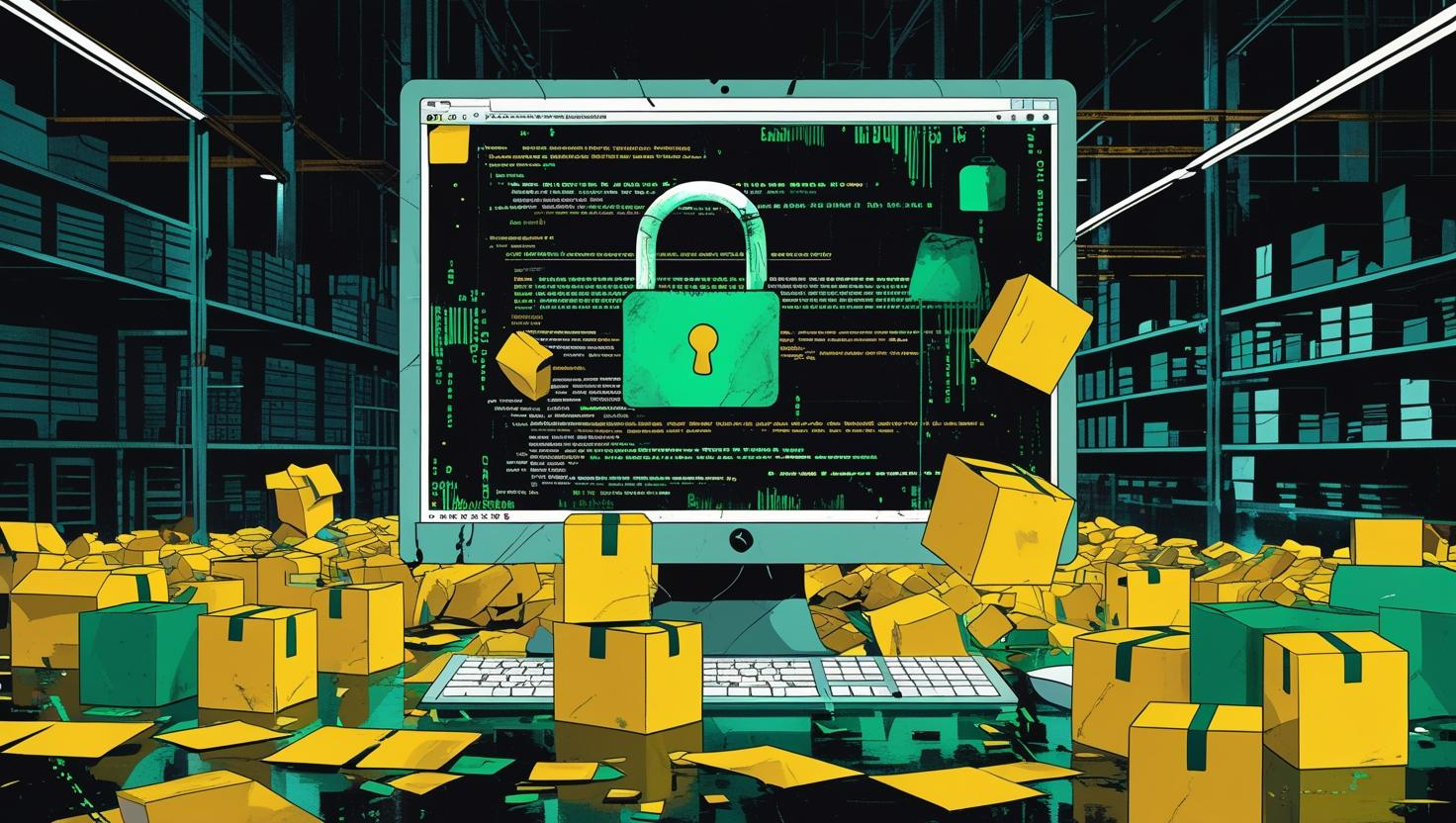Retail Supply Chain Attacks: A Wake-Up Call for Global Logistics Providers
By Bart Bullard on Jun 3, 2025 2:09:29 PM

Over my career, and most recently as VP of IT at Source Logistics, I’ve had deep experience dealing with the security challenges of modern supply chain management. In today's interconnected world, cybersecurity has always been crucial, especially for businesses like ours that manage complex retail supply chains. It's essential to protect the integrity and security of data and operations to ensure the smooth movement of goods across borders and industries.
In my view however, the recent surge in cyberattacks on retail supply chains should serve as a clear warning for logistics providers worldwide that the threat landscape in our industry is shifting.
Overview of Recent Cybersecurity Incidents in Retail Supply Chains
The Peter Green Chilled ransomware attack on May 14 exposed clear vulnerabilities within the UK retail supply chain. While transport operations continued uninterrupted, the company was forced to suspend order processing temporarily. Communication channels were severely impacted, phone lines were blocked, and email servers stopped accepting external messages, creating significant disruption.
Peter Green Chilled supplies almost all major UK supermarkets including Walmart-owned Asda, Morrisons, Sainsbury's, Tesco, Waitrose, Co-op, and M&S.
Other Recent Cyberattacks in the Retail Sector
These latest attacks come hot on the heels of other recent cyberattacks targeting the retail sector. Co-op, Harrods, and M&S all faced similar breaches. These incidents indicate attackers are zeroing in on chilled and frozen food distribution, a sector where timing is critical and any disruption cascades through entire supply chains.

Why Attackers Prefer Operational Disruption
In the “old” days, cyber-attacks focused on bank account and card fraud to generate cash. This account data would be compromised and then sold on the Dark Web for third parties to cash out.
Modern attackers instead prioritize operational disruption via ransomware over data theft because of the more universal nature of its impact. And this impact is acutely felt where perishable goods are involved. The damage is amplified due to spoilage, logistical bottlenecks, and reputational harm to retailers and logistics providers alike - threatening both business continuity and consumer trust.
Why Food Logistics and Retail Supply Chains Are Prime Targets for Cybercriminals
The very nature of food logistics makes supply chain a prime target for cyber-attacks. The distribution of chilled and frozen goods depends on the ability to keep products fresh and deliver them on time, with a verifiable chain of custody. Any disruptions caused by cyber threats, especially ransomware, can have a domino effect on the entire supply chain.
Key factors include:
- Vulnerability of short shelf-life products: Chilled and frozen food items need strict temperature controls and quick transportation to avoid going bad. When cyber-attacks cause downtime, it quickly leads to lost inventory, increased costs, and unhappy customers.
- Operational disruption: Ransomware attacks can shut down order processing and inventory management systems. This creates bottlenecks in warehouses, delays in transportation, and missed delivery deadlines that are crucial for keeping food fresh.
- Risks associated with just-in-time delivery: Retail heavily depends on just-in-time (JIT) models to keep storage costs low and reduce waste. Cyber incidents that disrupt or slow down these tightly scheduled deliveries put additional pressure on the entire network, forcing expensive last-minute changes or emergency sourcing.

The urgency surrounding food logistics gives attackers more power. Bad Actors aim to disrupt operations instead of just stealing data. By targeting time-sensitive supply chains, they can create immediate impact and force victims into compliance by threatening escalating losses directly tied to food spoilage and loss of consumer trust.
This combination of perishable goods, reliance on JIT delivery, and complex coordination makes the food logistics sector an attractive target for sophisticated threat actors who want to cause maximum disruption.
The Rise in Ransomware Attacks
The frequency of ransomware attacks has surged, with attacks almost ubiquitous, and around 45% of retail organizations falling victim to these malicious incidents. Attackers are employing aggressive tactics like blocking communication channels to intensify pressure on businesses, compelling them to meet ransom demands swiftly to resume operations.
Implications for Global Logistics Providers
The escalating cybersecurity threats facing UK retailers and logistics providers serve as a stark warning for global players in the industry. As cyber criminals expand their targets and tactics, it is imperative for logistics providers worldwide to enhance their security measures and remain vigilant against evolving cyber risks.
Recommendations for Enhancing Cyber Resilience in Retail Supply Chains
At Source Logistics we’ve been investing heavily in both our IT infrastructure and cyber resilience. As any good security practitioner will tell you, you can never be absolutely secure, but adopting a layered strategy, taking care of the “basics” like enforced multi-factor authentication and good patch management for example can go a long way in mitigating risk.

Additional Considerations Include:
- Adopting Comprehensive Cyber Insurance Policies
Cyber Insurance policies are not a luxury but instead are a necessity of doing business. It is not just about protecting your customers and business; it is about having a good response plan and resources if a cyber event happens. Source Logistics is diligent in selecting the best possible insurance partner for the industries we serve.
- Investing in Advanced Monitoring Tools
Speed to awareness and action is critically important in any cyber incident. The earlier a vulnerability is identified, the less time the vector is at risk. It is crucial for logistics providers to invest in advanced monitoring tools. These solutions can provide valuable insights into potential weaknesses in the system and help organizations take proactive measures to mitigate risks. Knowledge without action is worthless, and prioritized mitigation must be a part of the plan.
- Promote Cross-Sector Information Sharing
Cross-sector information sharing between retailers and logistics firms is essential for anticipating emerging threats targeting critical infrastructure components. By collaborating and sharing knowledge about potential risks, both parties can better protect themselves against cyber-attacks that may disrupt operations or compromise sensitive data. Cyber-security audits should be a part of the annual Technology landscape for every company.
Conclusion
The Peter Green Chilled ransomware attack serves as a warning sign, exposing the systemic risks that all global players in retail supply chains face. It is crucial for executives at logistics firms worldwide to take immediate action and learn from these incidents to prevent similar disruptions from happening in other locations.
At Source Logistics, we are dedicated to leading the way through innovation in secure third-party logistics solutions. Our focus is on finding a balance between efficiency and resilience when it comes to combating evolving cyber threats.
To find out more about how we can support your growth plans in the U.S. – safely and securely – contact us today.
You May Also Like
These Related Stories

The Digital Supply Chain: From Data To Decisions

Use Case: How Source Logistics enables LATAM Food & Beverage producers to reach their customers across the U.S.
